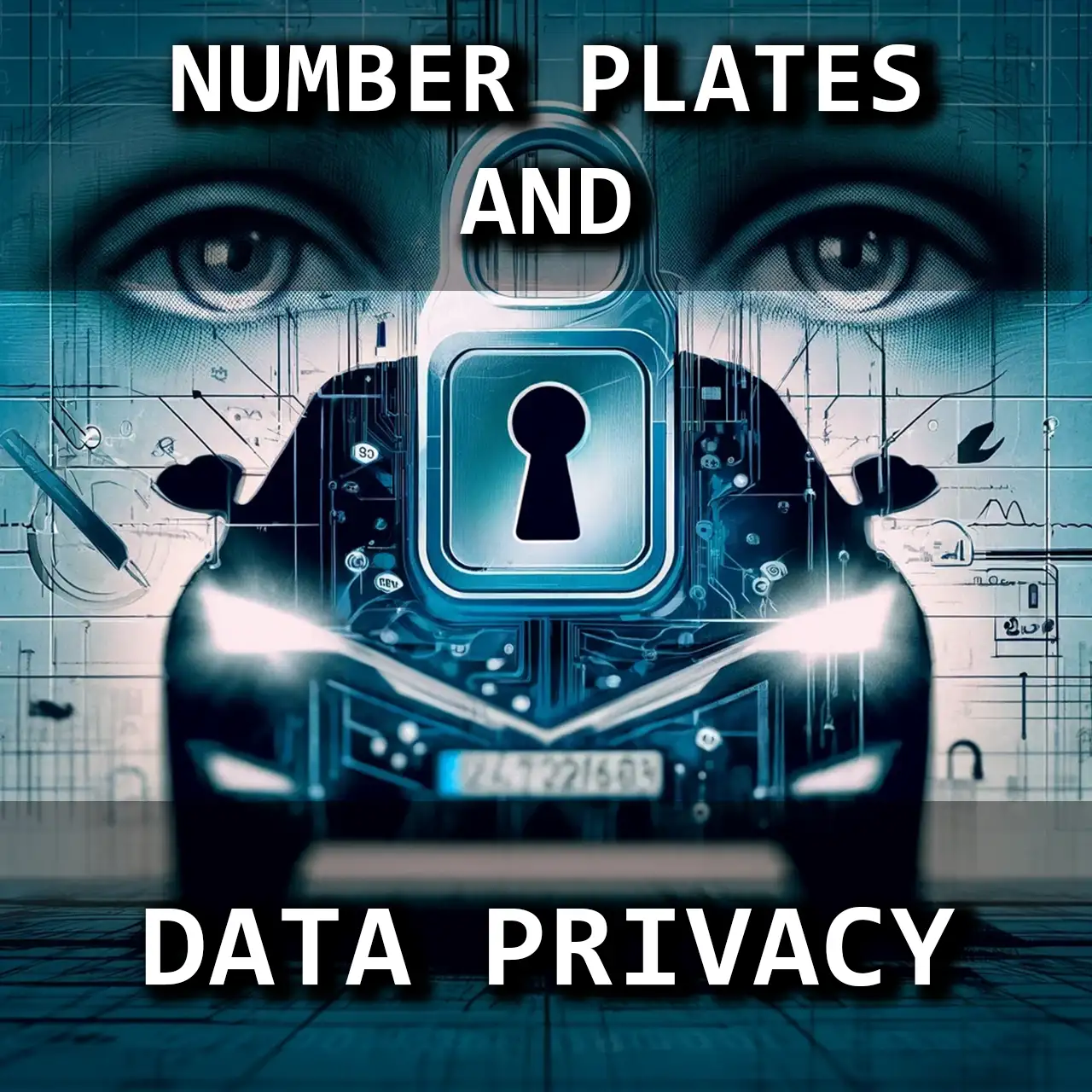In an age where data privacy is an increasingly pressing concern, the information accessible through vehicle number plates has come under scrutiny. While number plates serve a crucial purpose in identifying vehicles and facilitating law enforcement, the extent to which personal information should be tied to these plates is a topic of ongoing debate. In this article, we’ll explore the current state of number plate data accessibility in the UK, compare it to practices in other countries, and discuss the implications for personal privacy.
The UK’s Approach to Number Plate Data
In the United Kingdom, the Driver and Vehicle Licensing Agency (DVLA) maintains a comprehensive database of personal and vehicle information linked to registration numbers. However, access to this data is strictly regulated to protect vehicle owners’ privacy. Members of the public can access basic vehicle details, such as the make, model, colour, and year of registration, by entering a number plate on the DVLA’s website.
However, personal information, such as the vehicle owner’s name and address, is not publicly available. To access this sensitive data, individuals must have a “good reason” and apply directly to the DVLA. Acceptable reasons may include:
- Establishing legal liability in the event of an accident or injury
- Tracing the owner of an abandoned vehicle
- Resolving disputes related to parking or obstruction
It’s important to note that curiosity or a desire to contact the vehicle owner for non-legitimate reasons does not constitute a “good reason” for accessing personal data.
Global Comparisons
The UK’s approach to number plate data privacy is relatively stringent compared to some other countries. For example:
- United States: In many U.S. states, vehicle ownership information is considered public record and can be accessed by anyone through the Department of Motor Vehicles (DMV) for a fee. However, some states have introduced opt-out provisions or restrictions on the use of this data for marketing purposes.
- Australia: Vehicle registration data is generally considered personal information and is protected under privacy laws. Access to this data is restricted to authorised parties, such as law enforcement agencies and toll road operators.
- Germany: Germany has some of the strictest privacy laws in Europe, and access to vehicle ownership data is tightly controlled. Personal information can only be disclosed to third parties with the owner’s consent or in specific legal circumstances.
These varying approaches to number plate data privacy highlight the ongoing challenge of balancing public access to information with the protection of individual privacy rights.
Further Reading
You may also be interested in: The Challenges of Implementing Digital Number Plates Globally
The Role of ANPR Technology
The proliferation of Automatic Number Plate Recognition (ANPR) technology has further complicated the debate around number plate data privacy. ANPR systems use cameras and software to automatically read and record vehicle registration numbers, enabling a wide range of applications, from traffic management and crime prevention to parking enforcement and marketing.

While ANPR technology offers numerous benefits, it also raises concerns about the potential for misuse and the erosion of privacy. In the UK, the use of ANPR is regulated by the Surveillance Camera Code of Practice, which sets out guidelines for the responsible deployment of the technology. However, critics argue that more needs to be done to ensure transparency and accountability in the use of ANPR data.
The Importance of Choosing a Reputable Number Plate Supplier
When it comes to protecting your privacy in relation to your number plate, one of the most important steps you can take is choosing a reputable and trustworthy supplier. A reliable number plate provider will not only ensure that your plates meet all legal requirements and DVLA standards but also prioritise the security and confidentiality of your personal information.
At SurePlates, we understand the importance of privacy and take every precaution to safeguard our customers’ data. As a DVLA-registered supplier, we adhere to strict data protection protocols and never share or sell personal information to third parties without explicit consent.
When selecting a number plate supplier, look for one that:
- Is fully registered with the DVLA and complies with all relevant regulations
- Uses secure, encrypted systems for data storage and transmission
- Has a clear and transparent privacy policy outlining how personal information is collected, used, and protected
- Offers high-quality, durable plates that meet all legal specifications, such as our 4D laser cut and gel number plates
By entrusting your number plate needs to a reputable supplier like SurePlates, you can have peace of mind knowing that your personal data is in safe hands and that your plates will be crafted to the highest standards of quality and compliance.
The Future of Number Plate Privacy
As technology continues to advance and the debate around data privacy evolves, it’s likely that we’ll see further changes in the way number plate information is managed and accessed. Some potential developments include:
- Enhanced data protection regulations: Governments may introduce stricter laws and guidelines governing the collection, storage, and use of number plate data to better protect individual privacy rights.
- Opt-out provisions: More countries may adopt opt-out systems, allowing vehicle owners to request that their personal information be withheld from public records or specific uses.
- Blockchain technology: The use of blockchain-based systems could provide a secure, decentralised way to manage number plate data, giving vehicle owners greater control over their personal information.
As a leading provider of high-quality 4D and gel number plates, SurePlates is committed to staying at the forefront of these developments and ensuring that our customers’ privacy is protected at every step of the number plate purchasing and registration process.
Conclusion
The debate around number plate data privacy is complex and multifaceted, with valid arguments on both sides. While public access to vehicle information can serve important purposes, such as aiding law enforcement and resolving disputes, it’s crucial that personal privacy rights are protected and that access to sensitive data is carefully regulated.
In the UK, the DVLA’s approach to number plate data strikes a balance between public access and privacy protection, ensuring that personal information is only disclosed when there is a legitimate reason to do so. As a vehicle owner, it’s essential to stay informed about your rights and take steps to safeguard your personal data.
At SurePlates, we understand the importance of privacy and security when it comes to your number plate. As a trusted, DVLA-registered supplier of high-quality 4D and gel plates, we are committed to maintaining the highest standards of data protection and ensuring that our customers’ personal information is always kept safe and secure.
In an ever-changing landscape of data privacy and technological advancement, it’s crucial that we remain vigilant and adaptable in our approach to number plate information. By working together to prioritise privacy, security, and responsible data management, we can ensure that number plates continue to serve their essential purposes while respecting the rights and freedoms of vehicle owners across the UK and beyond.

